Category Archives: Artificial intelligence
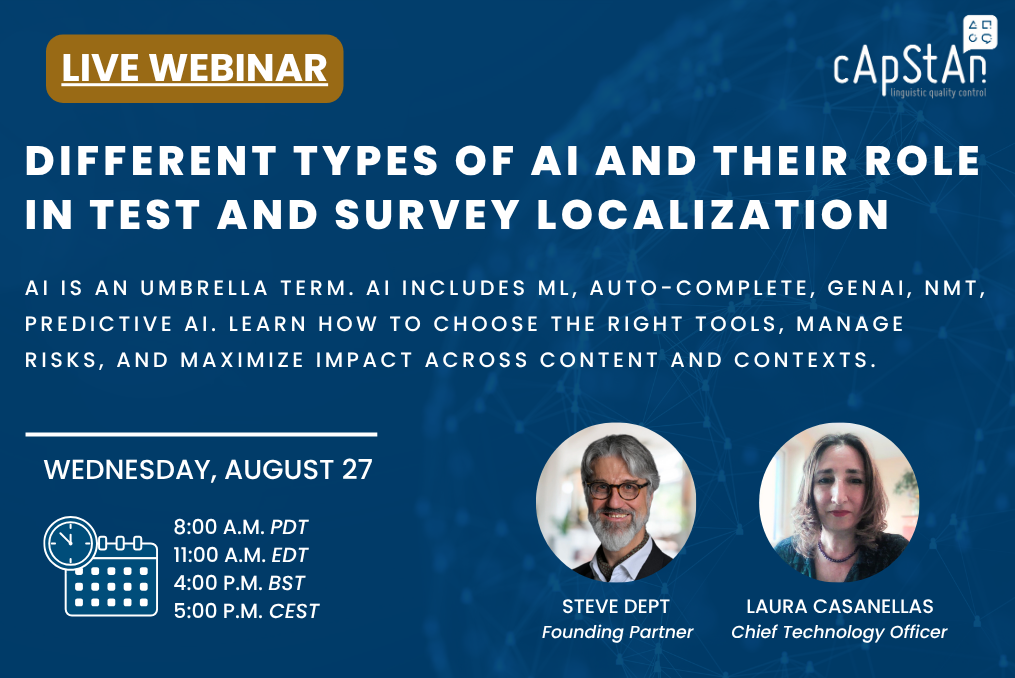
Leveraging Translation Technology with Discernment | The Keys to Smart Localisation unveils on August 27, 2025
Translation and localisation has traditionally been a cost centre, and the work performed by professional translators was mostly paid by word, by line, by page. Today, this model has become meaningless: translating half a million words or generating 100 pages directly in a foreign language can be done faster and cheaper than crafting two or three …
Read More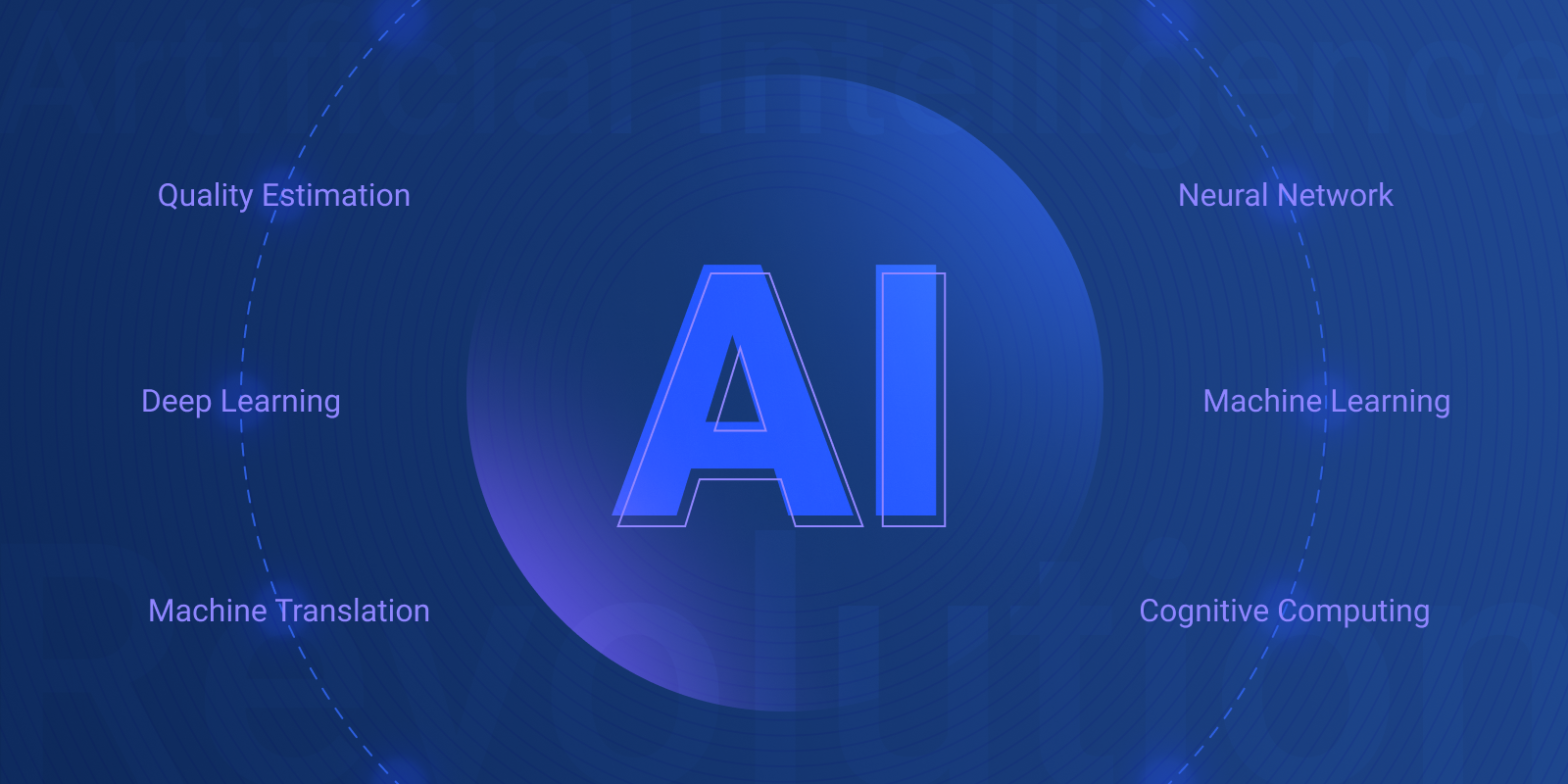
Quality Estimation (AIQE), A New Paradigm
Artificial Intelligence (AI) has been used in translation workflows for quite a while as a way of enhancing productivity by reducing translation effort. In combination with the previous productivity enhancing solution: translation memories (TM), the results are very powerful as they can reduce delivery time and costs significantly. In the 1990s, the introduction of translation memories …
“Quality Estimation (AIQE), A New Paradigm”
Read More
Putting into perspective the rearview mirrow, the sonar and the periscope | Steve Dept, Founding Partner
There is no shortage of C-Suite executives and founders who prompt generative AI to provide an optimistic outlook of the coming year. This exercise is typically associated with humble bragging (a frequent oxymoron) about achievements. So, is it anachronic to use a plain rearview mirror for hindsight, an old-fashioned sonar to sound depth, and a …
Read More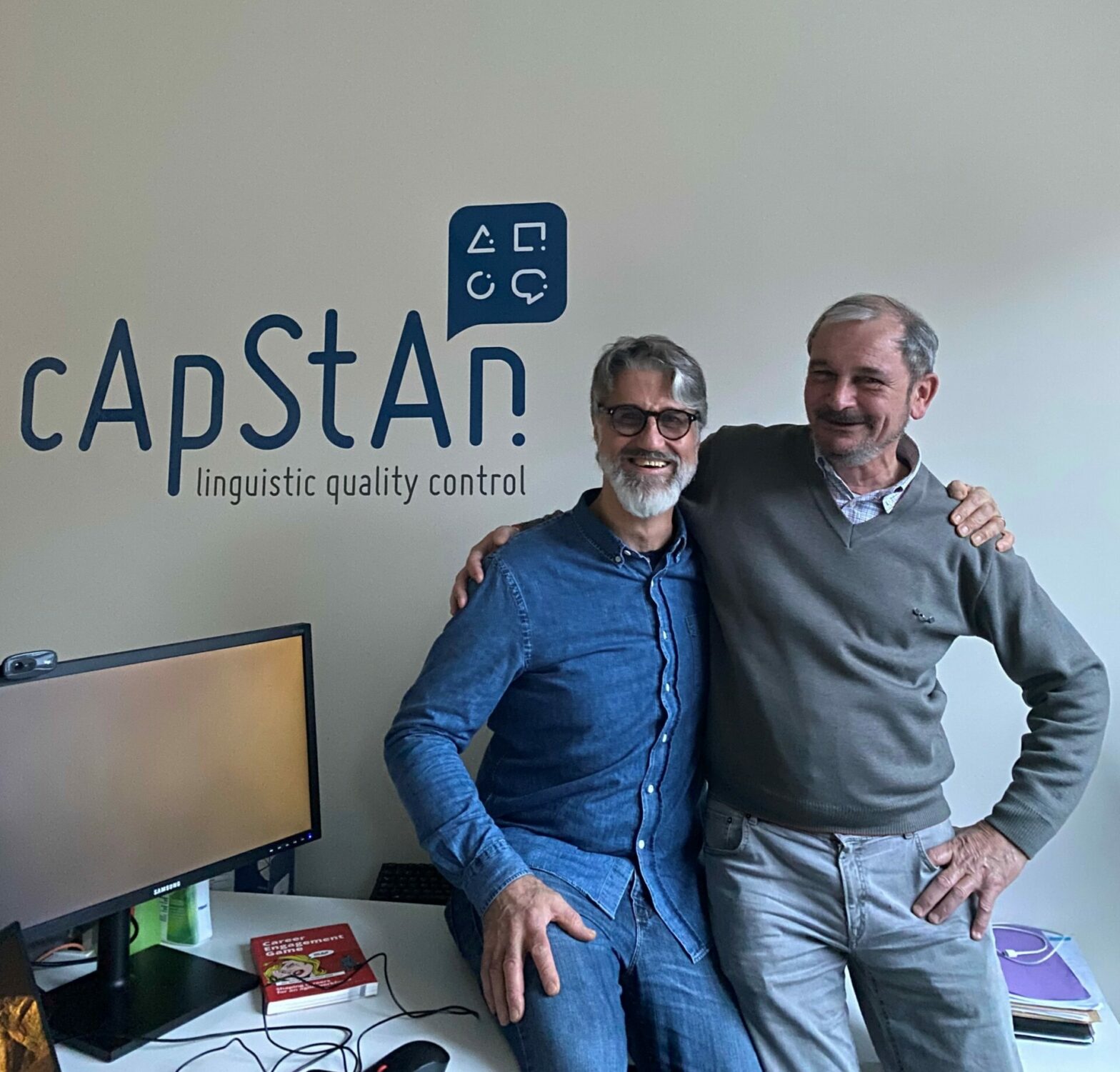
“cApStAn at a scale”, Jan Denys, CEO, and Steve Dept, Founding Partner
No comparative surveys without comparable data Twenty-four years ago, cApStAn started developing, testing, fine-tuning and implementing methods to ensure comparability between different language versions of tests and questionnaires. That was our core activity and it still is. Tests and questionnaires are measurement instruments. They measure knowledge, skills, attitudes, trends, or opinions. They link data points …
““cApStAn at a scale”, Jan Denys, CEO, and Steve Dept, Founding Partner”
Read More
“Navigating the Frontiers of DEI and AI: Insights from cApStAn’s 2023 I.C.E. Exchange Experience”
One of cApStAn’s teams is just back from Colorado Springs, USA, where they attended the 2023 Institute for Credentialing Excellence (I.C.E.) Exchange. Devasmita Ghosh (Business Development and Marketing Lead), Nela Manojlovic (Project Manager) and Founding Partner Steve Dept spent a full week there. One needs to begin with the venue. The Broadmoor is a mythical …
““Navigating the Frontiers of DEI and AI: Insights from cApStAn’s 2023 I.C.E. Exchange Experience””
Read More
I.C.E. Exchange coming up soon! Visit us at booth #229
If you are attending the I.C.E. Exchange 2023 in Colorado Springs, USA, we shall be delighted to welcome you at our booth (# 229) for a chat with cApStAn Founding Partner and Head of Strategic Partnerships Steve Dept, Business Development and Marketing Lead Devasmita Ghosh, and Project Manager Nela Manojlovic. For over two decades, cApStAn has been involved in translation …
“I.C.E. Exchange coming up soon! Visit us at booth #229”
Read More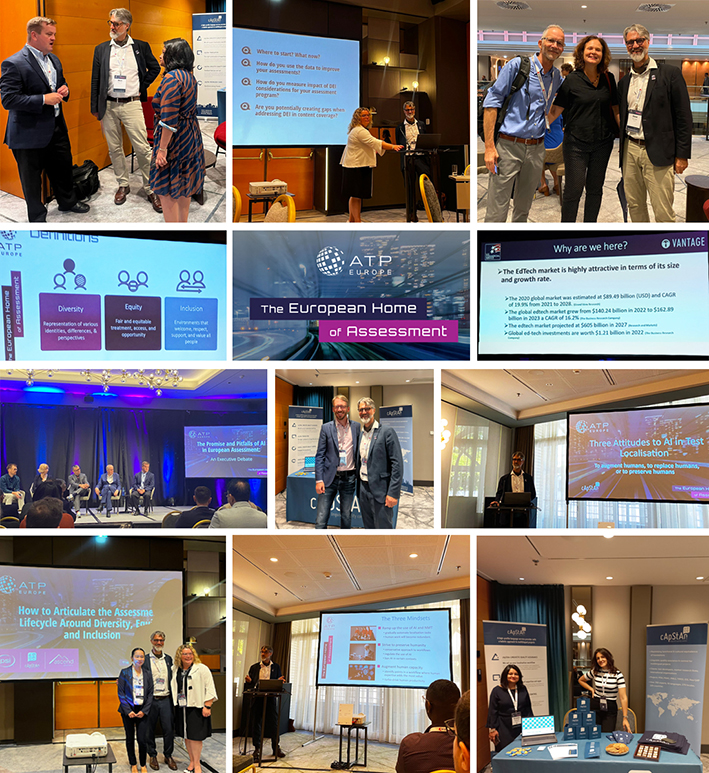
“AI and DEI Take Centre Stage at E-ATP 2023: Insights from cApStAn LQC”
This year the E-ATP 2023 Annual Conference was held in Vienna from September 20 to 22. At cApStAn, we have never missed the E-ATP conferences since 2015 in Dublin, and we are very proud to be one of the Silver Sponsors of this year’s edition. We were represented in Vienna by Founding Partner and Head …
““AI and DEI Take Centre Stage at E-ATP 2023: Insights from cApStAn LQC””
Read More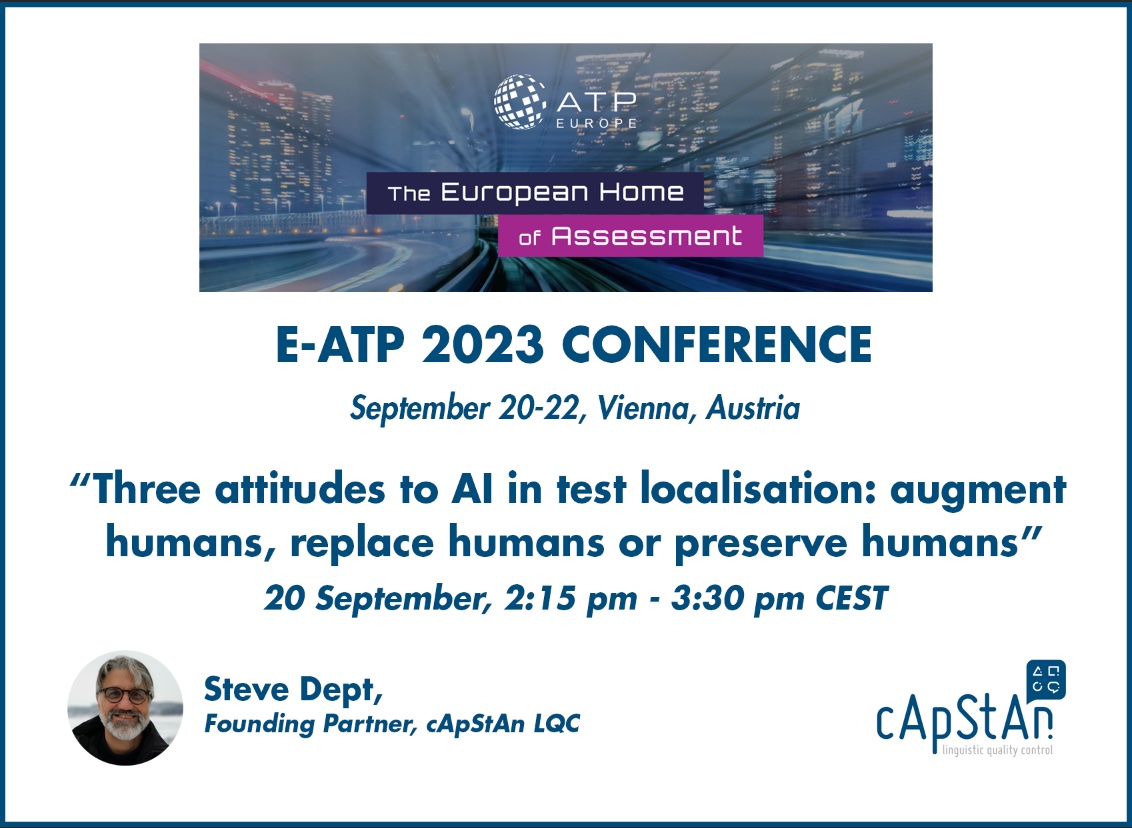
AI in Test Localisation: Augment, Replace, or Preserve Humans? Steve Dept at E-ATP 2023 Conference in Vienna, September 20
The 2023 edition of the European Chapter of the Association of Test Publishers (E-ATP) annual conference is taking place in Vienna, Austria, on September 20-22. We at cApStAn are delighted that our Founding Partner Steve Dept has been invited to present during one of the sessions on September 20 at 14:15. His presentation is titled …
Read More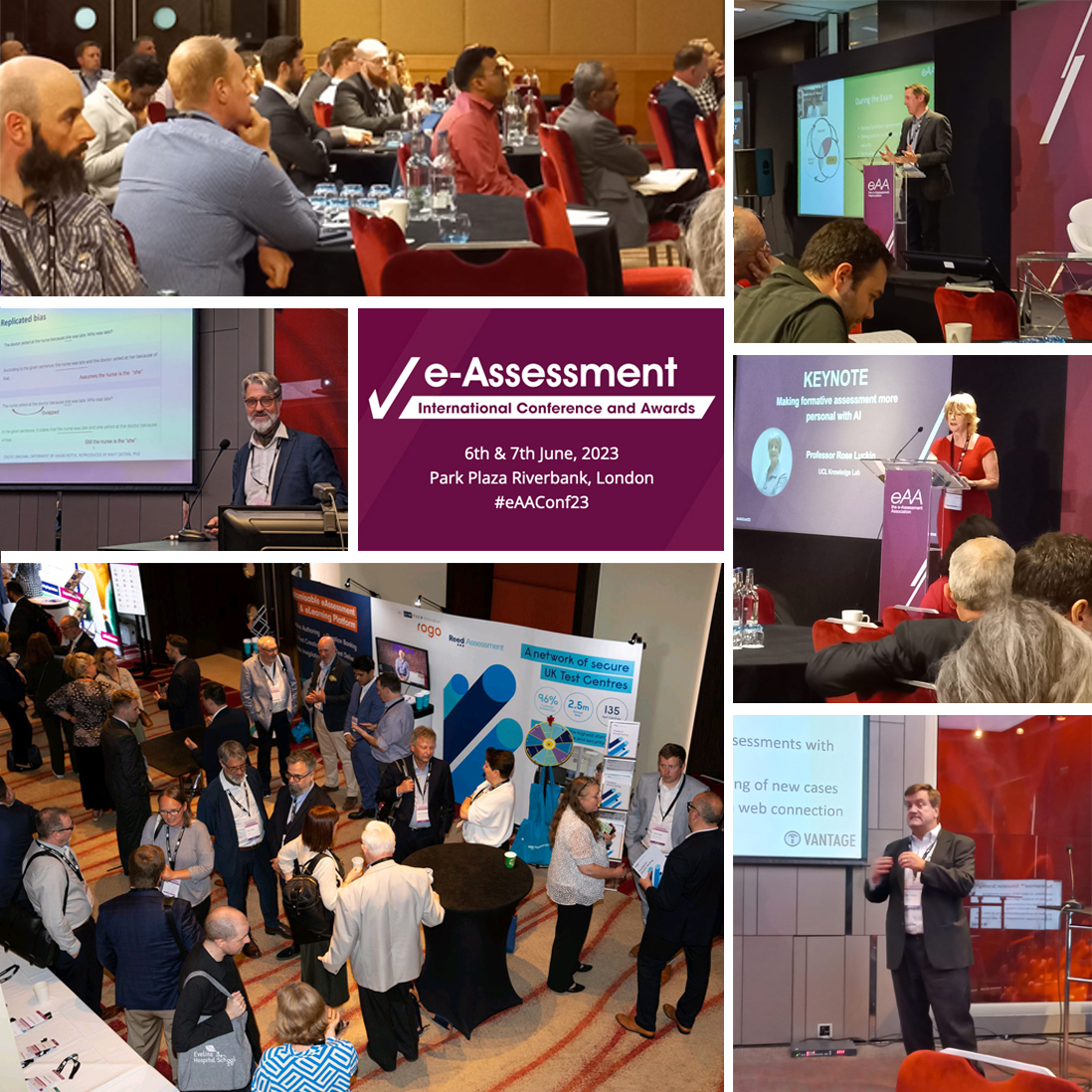
Reflections from the e-Assessment Association (eAA) Conference: Insights, Connections, and New Perspectives
The 2023 edition of the e-Assessment Association Conference, which took place in London, June 6-7, offered valuable insights, connections, and fresh perspectives to industry professionals, encouraging collaboration and knowledge exchange. It covered a broad range of topics, including language bias in AI and inclusive assessment practices, exam security enhancements, innovative test design, guidelines for validity …
Read More
Disruptive potential of ChatGPT: should we ban it, reinstate oral exams, return to pen and paper, or embrace it?
ChatGPT is the new AI tool trained by OpenAI that everybody is talking about. ChatGPT works like a written dialogue between the AI system and the person asking it questions and has mind boggling encyclopaedic knowledge. It has allegedly passed the very complex the US medical licensing exam (USMLE), say researchers in the USA who have put …
Read More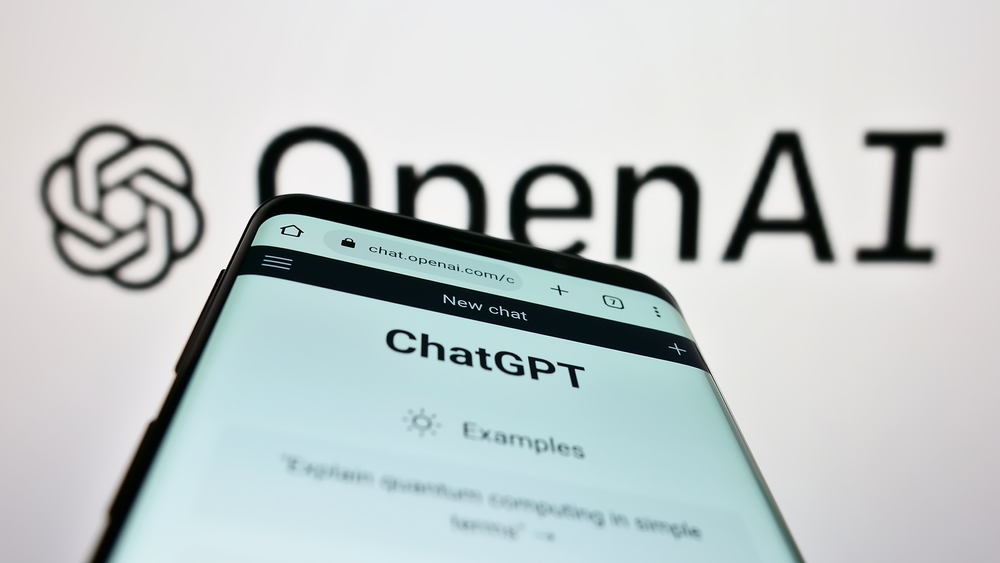
Open AI’s ChatGPT may result in educators having to rethink tests and assessments
Everyone is confronted with the breakthrough of (and the hype around) ChatGPT, a new AI tool trained by OpenAI launched at the end of last year. ChatGPT works like a written dialogue between the AI system and the person asking it questions. Open AI says the dialogue format “makes it possible for ChatGPT to answer questions, admit its …
“Open AI’s ChatGPT may result in educators having to rethink tests and assessments “
Read More
The translator of the future is a human-machine hybrid
The translator of the future is a human-machine hybrid The gist of a recent article in The Economist is precisely what we at cApStAn Linguistic Quality Control have been applying for years by looking at “augmented translator models” and man-machine interaction in translation environments. We believe that finding the right combination of automation and human intervention is the way forward. …
“The translator of the future is a human-machine hybrid”
Read More